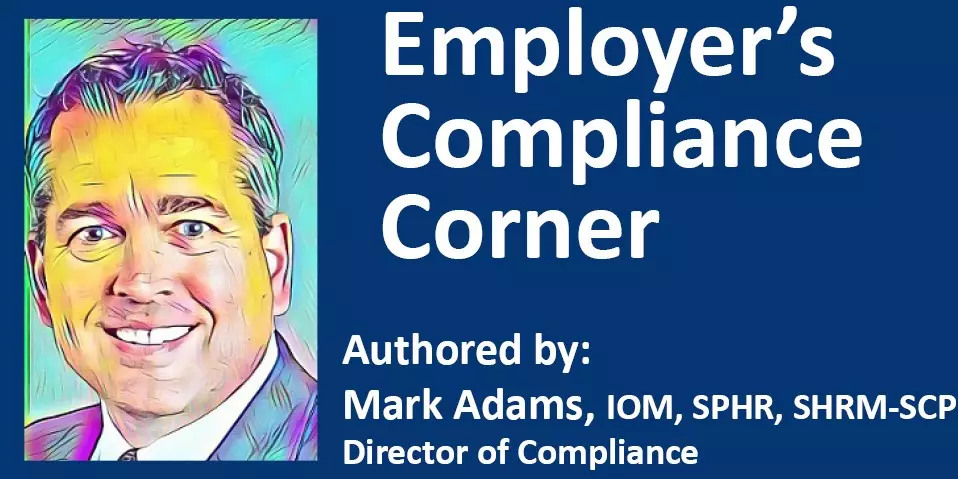
When I wrote my December blog “Questions Every Employer Should Ponder Before Determining Their Vaccine Policy”, I had floated many concepts that employers would ultimately need to face when the COVID-19 vaccines became readily accessible and prevalent in society; including questions surrounding what an employer’s role should be. (Questions such as: should they encourage their employees to get vaccinated? Should they require it? Should they not take an active position on the topic?)
At the time, there remained open questions about whether it could be mandated or not. Since then, the Equal Employment Opportunity Commission (EEOC) has clarified that employers can – with some notable exceptions – require their employees to be vaccinated. However, even at that later point, many employers were hesitant to take that step. In a pulse survey that we conducted shortly after the EEOC’s guidance, over 80% of survey respondents had indicated that they were going to encourage (but not require) employees to get vaccinated and were not going to be requiring any proof of their vaccination status. This middle of the road approach at the time made some sense. After all, COVID cases were going down, states started to schedule or were lifting company operating restrictions and states of emergency, and with the “return to normal” lurking on the horizon, why impose a more intrusive position?
But then the vaccination numbers plateaued, COVID-19 variants began to multiply (yep – there are more variants out there besides the Delta variant) and cases began to rise. For employers, this go around puts the onus on them to revisit those questions and weigh their options. After all, for many there are no Orders to answer these questions for them (however, in Connecticut, Governor Lamont signed an Executive Order mandating Long Term Care workers be vaccinated) unless you operate in a state that prohibits employers from mandating such use. As employers look at the case numbers, and keep a watchful eye on both CDC and OSHA guidance all while trying to keep their workplaces as fully operational to meet the needs of their customers, is the pressure building to take that next step and make it mandatory? The question has surfaced more and more and it is not type-casted to any one particular industry.
The question and idea is not going to illicit the same answer from every business. For some, the idea of an employer requiring vaccinations absent a federal or state requirement is akin to playing “big brother” over its employees. For others, the idea of requiring vaccinations promotes workplace safety and allows them to operate and serve their customers (especially if they require their vendors to be vaccinated).
Where does your company fall within the spectrum? The answer lies not so much in the prevailing commentary winds swirling around social media or the 6 o’clock news. Rather, the answer lies in sorting through several questions as well as your own company data and needs. What percentage of my employee population is currently vaccinated? (Or do I even have a clue?) What are my operating needs? How well staffed is my operation? How flexible is my staff? What are my customer’s needs and requirements? Could I service them if I lost several staff due to COVID? Might I be at risk of staff quitting over a policy of a vaccination mandate policy? What is your culture, mission or core values as an organization? What sort of employee feedback have you heard on the subject? How readily accessible is the vaccine to your workers? In light of the nature of my operations, how likely do I believe that an outbreak could occur in my facility? Are there other safety initiatives (such as those recommended by OSHA) that I have continued to maintain to mitigate the risk of COVID exposure in my workplace?
Some have predicted that the tide will turn when the Food and Drug Administration (FDA) grants full approval (as opposed to Emergency Use Authorization only) of the vaccine. Dr. Anthony Fauci said as much in an interview over the past weekend. However, other companies like United Airlines and Walmart are beginning to mandate vaccines whether such full approval has been granted or not. For others, are companies comfortable just waiting for that FDA shoe to drop prior to acting as the case numbers and pressure to meet budgetary goals continue to rise?
In short, it is all about Managed Risk.
Learn More
Join EANE on Friday, August 20th for our 60-minute BYOL | Employer Choices around Vaccine Mandates webinar. Join us as Meaghan Murphy, from Skoler Abbott talks about the pros and cons of requiring employees to be vaccinated. She’ll discuss the options we have as employers around mandating vaccines, accommodations, and testing. This promises to be an informative, lively conversation that will provide answers to your questions. Click Here to learn more and register!
Thank you for viewing this article in EANE’s Employer’s Compliance Corner Blog, Authored by our Director of Compliance, Mark Adams. Please visit again soon to stay up to date on today’s compliance updates and best practices for employers.